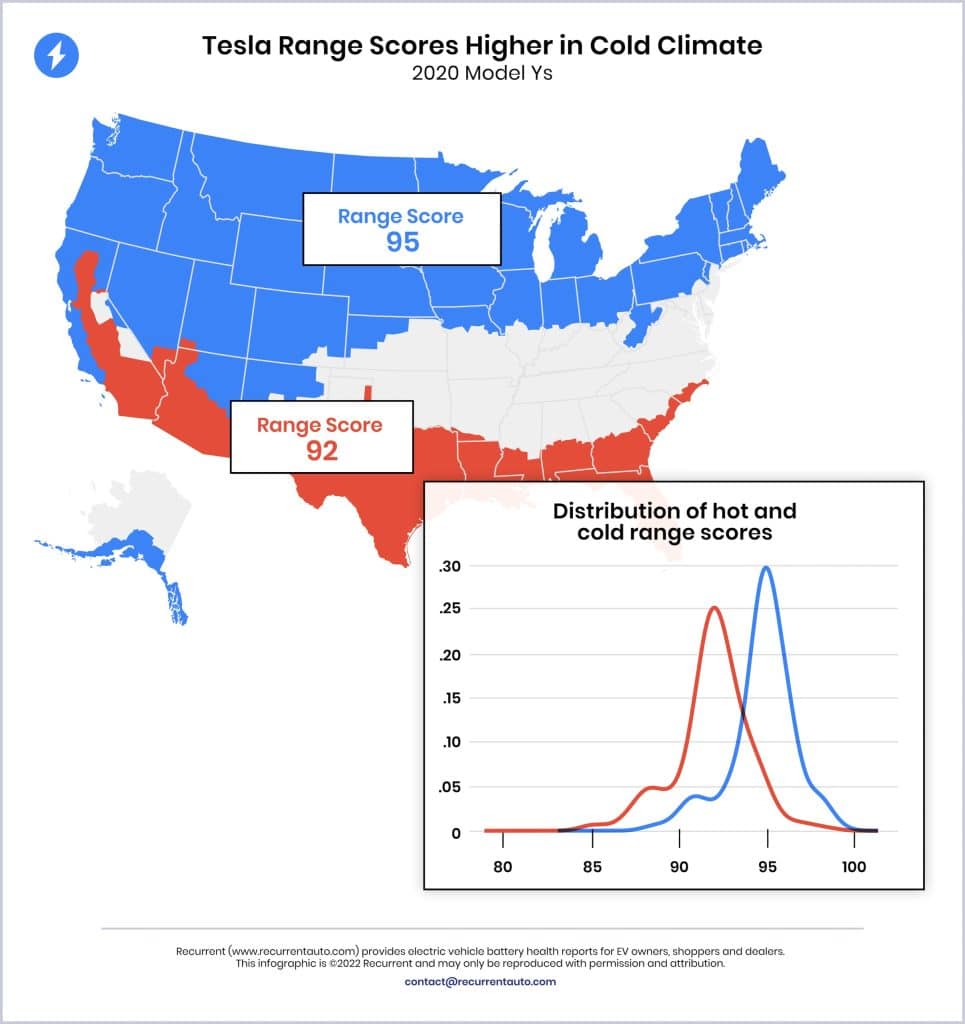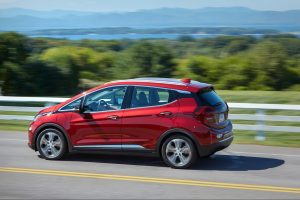Key Points
- ❄️ Cooler regions may be better for long-term Tesla battery health, despite short-term range loss.
- 🚗 A study of over 12,500 Tesla vehicles in the U.S. found that those in cold climates had better average range scores.
- 📊 Range scores measure how much of an EV’s initial range is expected at the time of the study.
- 🌡️ Heat from the environment can accelerate battery degradation, but range loss in cold climates is short-term and reversible.
- 🌞 Tips for Tesla owners in warmer climates include parking in the shade, charging to about halfway, considering newer lithium iron phosphate (LFP) batteries, and using an active thermal management system when not in use.
- 🔄 Recurrent Auto attributes Tesla’s battery resilience to its thermal management system.
- 🌍 The study aligns with the need for climate action, emphasizing electric powertrains’ benefits in reducing emissions and environmental impact.
Electric vehicles (EVs) often get a bad rap for range loss in cold climates, but a new study of Teslas shows that cooler regions may actually be better for an EV’s battery over the long term.
On Monday, Recurrent Auto shared results from a study showing that Tesla vehicles owned and operated in cold climates had better average range scores than those in hot climates (via electrek). The study looked at over 12,500 Tesla vehicles in the U.S., using data Recurrent has access to through its software.
While the study found this to be true amongst multiple Tesla models and model years, the results were most prominent in the Model Y. In particular, Model Y units with the 2020 model year averaged range scores of 95 in colder climates and 92 in warmer climates, as can be seen in the following infographic.

Researchers gave the Teslas range scores to capture how much of a given EV’s range was still expected at the time of the study. A Tesla vehicle with a range score of 90, for example, would still have 90 percent of its initial range. Additionally, the study was conducted using the U.S. Department of Energy’s “hot,” “cold,” and “marine” climate designations.
As for why the study only included Teslas, Recurrent notes that they are the most common EVs available, garnering the most data. They also cite Tesla’s battery thermal management system, which they say offers great protection against environmental damage to the battery’s long-term health.
According to Recurrent, heat from the environment contributes additional energy to an EV battery’s electrochemical reactions, accelerating unwanted chemical reactions that cause the battery to age. It also says 86 degrees Fahrenheit (30 degrees Celsius) is the generally accepted threshold for accelerated battery degradation.
While range loss may occur in colder climates due to energy consumption from keeping the cabin warm, Recurrent says this is short-term. Because it does not have the same electrochemical effect as heat on an EV battery, the battery’s range will return once it becomes warmer.
Recurrent provides additional details on heat and long-term battery degradation here, and about the short-term effects of environmental heat here.
Despite the results, there are a handful of things Tesla owners in warmer climates can do to protect the longevity of their batteries. For one, parking in the shade or in a garage can help prevent the battery from heating up as much. When you need to park in the sun, Recurrent recommends charging only to about halfway, as the battery is a little more stable at that level.
Whether buying new or used, buyers may also want to consider newer lithium iron phosphate (LFP) batteries, as they tend to be more resilient in hot climates. Anyone purchasing a used EV should consider how that vehicle was stored and used during previous ownership.
Lastly, the researchers highly recommend owning a car with an active thermal management system, which owners should leave plugged in when not in use. According to Recurrent, this lets the vehicle initiate battery cooling at lower temperatures than when they’re unplugged.





